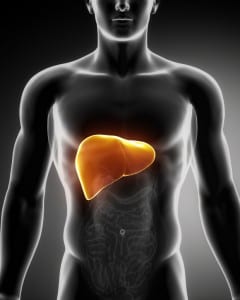1. Sugar Slows You Down
When I decided to give up sugar in my early twenties, probably the most remarkable effect and the one that stands out most in my memory was that I became the only person in the office where I worked who didn’t experience the “post-lunch coma.” Because my meals contained more protein than anything else, as well as veggies and other fiber-rich foods, my blood sugar stayed level all afternoon. While my co-workers became sluggish, passing yawns between desks, and staring bleary-eyed at their computer monitors, I remained alert. I got more work done during the second half of my work day than I did before lunch (have never been much of a morning-person) and often received snarky comments from other employees about my abnormal energy level. When I told them my secret, they would roll their eyes or remark on how they could never give up sugar.
I didn’t mind. It felt good to not be tired all afternoon.
2. Sugar Hampers Mental Activity
 My performance at work increased, not only because I was able to maintain stable blood-sugar and energy throughout the day, but also because my memory improved. I became better able to focus; and when I was inevitably interrupted, I could address whatever matters required my immediate attention then bounce right back to the task I had been working on beforehand without having to stop and think about what I was doing.
My performance at work increased, not only because I was able to maintain stable blood-sugar and energy throughout the day, but also because my memory improved. I became better able to focus; and when I was inevitably interrupted, I could address whatever matters required my immediate attention then bounce right back to the task I had been working on beforehand without having to stop and think about what I was doing.
This increased mental-clarity was due to a number of factors. Most obviously, when your blood-sugar levels are consistent and healthy, you don’t feel sleepy all of the time and your brain works better because of it. Less obvious is the fact that an overabundance of fructose such as that obtained from foods containing high-fructose corn syrup (sodas were the main culprit in my case) taxes your liver and pancreas. In short, these two organs have to work harder to manage all of that bad sugar and get it out of the blood stream. While doing so, they exhaust energy reserves which otherwise should have been used for processes such as breaking down fat and converting it to usable energy, as well as synthesizing hormones other than insulin. This results in an unpredictable combination of moodiness, anxiety, exhaustion, heaviness or bloating in the gut, a sluggish metabolism, and eventually a sick thyroid.
How could anyone’s brain be expected to function properly with all of this going on in the background? The answer: “It can’t and it won’t.”
3. Sugar Is Expensive
 “Wait, no it isn’t. Sugar is cheap! Right?”
“Wait, no it isn’t. Sugar is cheap! Right?”
Okay, so a five-pound bag of sugar doesn’t cost very much up front and high-fructose corn syrup is inexpensive to manufacture, thus the products that contain it tend to be so as well. However, sugar comes with a lot of hidden fees. Consuming enough of it is a sure fire way to develop cavities and gum disease, so you can be sure that you’ll be seeing your dentist more frequently. Go ahead and add your family doctor to the equation because sugar causes a lot of other health problems which you may not realize are the result of your sweet addiction.
Furthermore, sugar-related illnesses like diabetes and obesity have caused a steady rise in health insurance premiums. While you as an individual may not see yourself as personally responsible for this trend, purchasing and consuming sugar and sugar-filled products line the pockets of processed food manufacturers. As long as these companies continue to profit from it, they’ll keep pumping out the poison with zero regard to the health of the world’s population. (Don’t believe me? Read this.)
The cost of sugar is really starting to add up, but wait. There’s more.
As if the increased medical bills weren’t enough, over-consumption of sugar also triggers the production of ghrelin – the hormone which signals to your body that it’s hungry. You feel like you need to eat more so you spend more money on food. Then you gain weight and have to buy new clothes. Maybe you even get ambitious and sign up for a gym membership because you know you need to lose weight. However, if you keep eating sugar, you probably won’t have enough energy to really feel like working out. Instead you turn to expensive weight-loss supplements, buy the latest fad-diet book, or drop a couple hundred dollars on that “Guaranteed to work!” exercise machine you keep seeing advertised on television.
Which leads us to:
4. Sugar Makes You Fat
 As previously mentioned, a diet that includes sugar – high levels of fructose in particular – makes you far more likely to overeat. However, this isn’t the only reason that sugar causes weight-gain. Because sugar stresses the pancreas by forcing it to produce elevated levels of insulin, other hormones are neglected such as those which regulate weight, stress, digestion, and metabolism. When these systems are unbalanced, we experience fatigue and mood swings. Also, when the body is stressed, it produces cortisol which signals the metabolism to go into conservation mode; leading to an even further decrease in energy, metabolism, and ability to burn fat stores.
As previously mentioned, a diet that includes sugar – high levels of fructose in particular – makes you far more likely to overeat. However, this isn’t the only reason that sugar causes weight-gain. Because sugar stresses the pancreas by forcing it to produce elevated levels of insulin, other hormones are neglected such as those which regulate weight, stress, digestion, and metabolism. When these systems are unbalanced, we experience fatigue and mood swings. Also, when the body is stressed, it produces cortisol which signals the metabolism to go into conservation mode; leading to an even further decrease in energy, metabolism, and ability to burn fat stores.
So you see, there’s more to sugar than just empty calories packing the weight onto you.
5. Sugar Deactivates Your Immune System
So far we’ve touched on sugar’s effects on the mind, gut, and wallet. Now, let’s take a look at some of the hidden dangers of eating too many sweets.
Eating or drinking too much sugar also deactivates T-cells, the component in blood that fights bacterial infections. This effect can last anywhere from a couple of hours to an entire day, depending on how much you consume. If you find yourself getting sick a lot during cold and flu season, take a look at your sugar-intake and remember: just one regular-sized can of soda is enough to turn off your immune system for an hour or more.
6. Sugar Destroys Your Liver
 Another of the hidden risks is one that I’ve already briefly mentioned: Sugar destroys the liver. High-fructose foods like juice, soda, syrups, and other sweet liquids not only require the liver to work overtime to process them, they also cause it to neglect its other functions. An over-worked liver results in symptoms like fatigue, increase uric acid in the body, gout, high blood pressure, and kidney stones. Eating too much sugar also causes the liver to become fatty, leading to liver disease, insulin-resistance, and possibly even organ failure.
Another of the hidden risks is one that I’ve already briefly mentioned: Sugar destroys the liver. High-fructose foods like juice, soda, syrups, and other sweet liquids not only require the liver to work overtime to process them, they also cause it to neglect its other functions. An over-worked liver results in symptoms like fatigue, increase uric acid in the body, gout, high blood pressure, and kidney stones. Eating too much sugar also causes the liver to become fatty, leading to liver disease, insulin-resistance, and possibly even organ failure.
7. Sugar Leads to Cardiovascular Disease
Sugar doesn’t just increase fat around the waist and in the liver. By unbalancing the metabolism and hormones (specifically insulin), sugar also ramps up lipid levels in the blood stream. Over consumption of sugars is also now known to be a bigger cause of high blood pressure than salt. Between that and the increase in blood cholesterol and triglycerides, you’d better believe that your poor heart is struggling.
So you see, giving up sugar can prevent serious cardiovascular disease, in essence saving you from a broken heart!
8. Sugar Is A Primary Cause of Diabetes
 This one almost doesn’t need to be listed. Which of us hasn’t heard about the dangers of developing diabetes from eating too much sugar? But because it’s such a big risk; and a major detriment to your health, it has to be mentioned.
This one almost doesn’t need to be listed. Which of us hasn’t heard about the dangers of developing diabetes from eating too much sugar? But because it’s such a big risk; and a major detriment to your health, it has to be mentioned.
Here it is then: Eating too much sugar over extended periods of time leads to hypoglycemia and insulin resistance. Try to picture yourself pricking your finger with a tiny needle to test your blood a few times per day. Or maybe you’d like to have to self-administer syringes of insulin to yourself. Needles are fun, right?
Still need more reasons to give up sugar?
9. Sugar Disrupts Kidney Function
The next time you decide to chow down on a bowl of ice cream or enjoy a can of delicious fizzy soda, remember that sugar disrupts kidney function. Think of just how painful it must be to pass a kidney stone; or of the itching, burning, and constant urge to urinate every fifteen minutes or so that comes with a good old-fashioned urinary tract infection. (Who doesn’t love a UTI?!?) Perhaps we could take it a step further to a full-blown bladder infection, complete with abdominal pain, fever, and blood in the urine.
If you’re prone to gout, you should know that sugar-related kidney malfunction causes those flare-ups, too.
“Why are we thinking about all of these horrible things while we’re trying to enjoy our sugary treats,” you ask? Because you’re about 50% more likely to come down with these ailments if you eat or drink lots of sugary foods.
10. Sugar Makes You Smell Bad
Due to the hormone imbalances, malfunctioning immune system, increase in body fat, decrease in liver and kidney function, and poor digestion; eating too much sugar actually makes you smell bad. Maybe you’re thinking, “Okay, that’s not such a big deal.” If so, you’re not seeing the big picture. Despite the fact that our olfactory is much less sensitive than the majority of the rest of the animal kingdom, humans are still affected by each other scents.
A healthy scent signals to other people on a subconscious level that you are strong, capable, and someone they want to be around. If you have an unpleasant body odor, you are far less likely to succeed in your social endeavors – both personal and work-related (ie: that big raise you wanted is going to the other guy because his B.O. inspires confidence.)
Yes, I know it sounds silly, but trust me. There’s about half a billion years of evolution plus volumes of scientific documentation behind how smell affects our species.
But wait, there’s more! Bacteria love sugar and that includes your native buccal flora. When you eat sweets, they eat sweets. Then they stick to your teeth via the plaque they produce and use the energy you’ve given them to propagate more bacteria. In no time flat, you have bad breath. While you may not notice it, you can bet your bottom jaw that the people around you do and they’re holding their breath in the hopes that you’ll soon stop subjecting them to yours.
So there you have it: The Top 10 Reasons to Give Up Sugar, Right Now!
Yet even with all of this knowledge under your belt, quitting sweets is exponentially easier said than done. Here’s some information to help you get there.
How To Break The Sugar Addiction
It may come as a shock at first – though with everything else you’ve just discovered about sugar and what it does to your body, maybe not as much as it would have fifteen minutes ago – Sugar Is More Addictive Than Cocaine. (Click here to read the study.)
Remember my trip down memory lane at the beginning of this post? When I talked about begging my mother for sweets in the checkout line of the grocery store, did it strike a chord with you, too? It’s a sad fact that most of us have been addicted to sugar since childhood; one that I’m hoping future generations will be increasingly more aware of so we as a society can break this trend. However, children learn by example and before we can help them to not be addicted to the stuff, we have to find a way to quit sugar ourselves.

